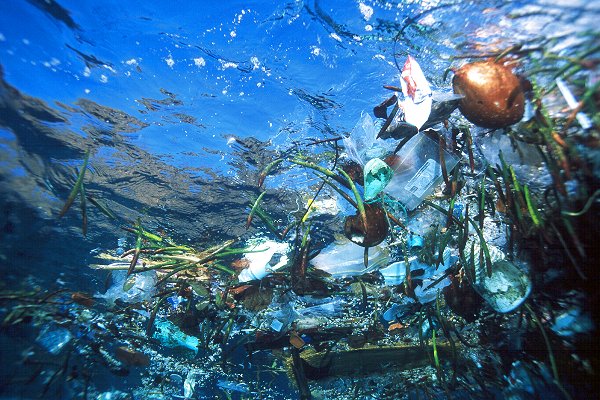
Professor Rosalind Malcolm, co-director of the Governing Plastics Network, opens our coverage of COP26 by explaining why plastic pollution and climate change are all part of the same wicked problem, one driven by a culture of unsustainable consumption.
The environmental crisis currently being discussed at the COP26 conference in Glasgow has many causes, and our love of plastics is one such.
The greenhouse gas emissions from every stage of the life cycle of a plastic product are connected, like other human activities, to climate change.
Plastics require huge industrial activity starting with the extraction of the fossil fuels which go to the cracker plants producing the building blocks for plastics. The impacts on climate change from plastics start there.
Then the ubiquitous nature of plastics means that they are present in every aspect of our lives from the very clothes we wear to our homes, furniture and the cars we drive.
Scrapping this amount of products is a challenge of mammoth proportions. Incinerating them leads to climate change impacts as does landfill – and the ocean gyres of floating plastic.
Our work in the Governing Plastics Network has involved examining the way in which we talk about plastics and how that impacts on our measures for controlling them. We have built networks which span East African countries, the Caribbean, EU countries and the UK. Exchanging knowledge and sharing information around the governance of plastics has been key to our activities.

We have learned that managing plastics through regulation, whether that is a ban on single use plastics or a financial disincentive such as taxation, is not a simple fix.
Our solutions need to be as finely and cleverly designed as the plastics themselves. We need to design solutions which consider the way in which we use plastics and how we can maintain their usefulness without causing yet more environmental harm.
We need to make laws tailored to suit the situation, laws which capture all aspects of plastics and their impact on the earth.
Above all, we need to deal with the domination in our lives of ‘things’ – our insatiable desire for more and more stuff. Otherwise continuing to attach value only to what can be consumed, possessed and ultimately discarded could end up costing us the Earth.

Dirty fuels and plastics make each other commercially viable trapping us all in an “insatiable desire for more and more stuff”. We need to break through the (cyclic) plastics economy. GPN, in that sense, provides an important forum …
Countries need to rapidly downscale their attachment to fossil fuels for many reasons. Petrochemicals feed the plastics industry and in turn environmental plastics pollution on a vast scale.
We can learn much from anti plastic movements on how to change people behaviour. We need these efforts now for climate change and we are learning very much how communication can change people in our GPN.
This is very insightful and spot on.
And GPN is doing a commendable job by bringing to the fore the plastic pollution and climate change problem.
Thank you. The work of the GPN is integral to the solution of this problem. Collectively, a holistic and multi-sectoral approach is required and the process begins with each of us.